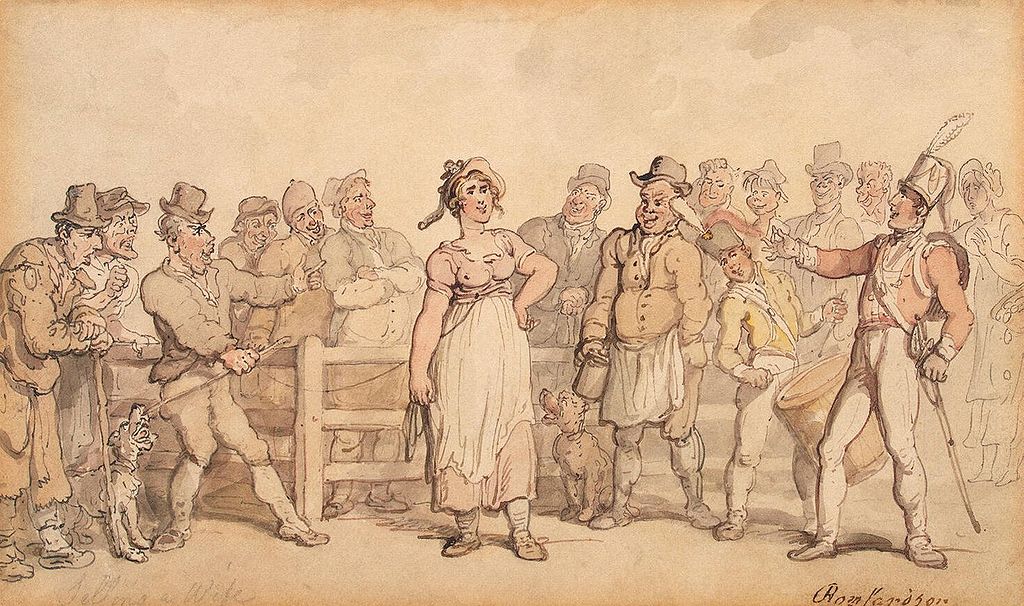A note of a dubious anniversary from Robert Chambers, writing in his 1869 Book of Days, though history is full of these quasi-divorces throughout the 19th century. Usually they were surprisingly amicable affairs based on village common sense when a marriage had failed and separation in law was only for the rich…
The Annual Register for 1832 gave an account of a singular wife-sale which took place on the 7th of April in that year. Joseph Thomson, a farmer, had been married for three years without finding his happiness advanced, and he and his wife at length agreed to separate. It is a prevalent notion amongst the rude and ignorant in England that a man, by setting his wife up to public auction, and so parting with her, legally dissolves the marriage tie, and escapes from all its obligations.
Thomson, under this belief, came into Carlisle with his wife, and by the bellman announced that he was about to sell her. At twelve o’clock at noon the sale commenced, in the presence of a large number of persons. Thomson placed his wife on a large oak chair, with a rope or halter of straw round her neck. He then spoke as follows:
‘Gentlemen, I have to offer to your notice my wife, Mary Anne Thomson, otherwise Williams, whom I mean to sell to the highest and fairest bidder. Gentlemen, it is her wish as well as mine to part for ever. She has been to me only a born serpent. I took her for my comfort, and the good of my home; but she became my tormentor, a domestic curse, a night invasion, and a daily devil. Gentlemen, I speak truth from my heart when I say—may God deliver us from troublesome wives and frolicsome women! Avoid them as you would a mad dog, a roaring lion, a loaded pistol, cholera morbus, Mount Etna, or any other pestilential thing in nature. Now I have shewn you the dark side of my wife, and told you her faults and failings, I will intro-duce the bright and sunny side of her, and explain her qualifications and goodness. She can read novels and milk cows; she can laugh and weep with the same ease that you could take a glass of ale when thirsty. Indeed, gentlemen, she reminds me of what the poet says of women in general:
“Heaven gave to women the peculiar grace,
To laugh, to weep, to cheat the human race.”She can make butter and scold the maid; she can sing Moore’s melodies, and plait her frills and caps; she cannot make rum, gin, or whisky, but she is a good judge of the quality from long experience in tasting them. I therefore offer her with all her perfections and imperfections, for the suns of fifty shillings.’
If this speech is correctly reported, the man must have been a humorist in addition to his other qualities. The account concludes with the statement that, after waiting about an hour, Thomson knocked down the lot to one Henry Mears, for twenty shillings and a Newfoundland dog; they then parted in perfect good temper—Mears and the woman going one way, Thomson and the dog another.

